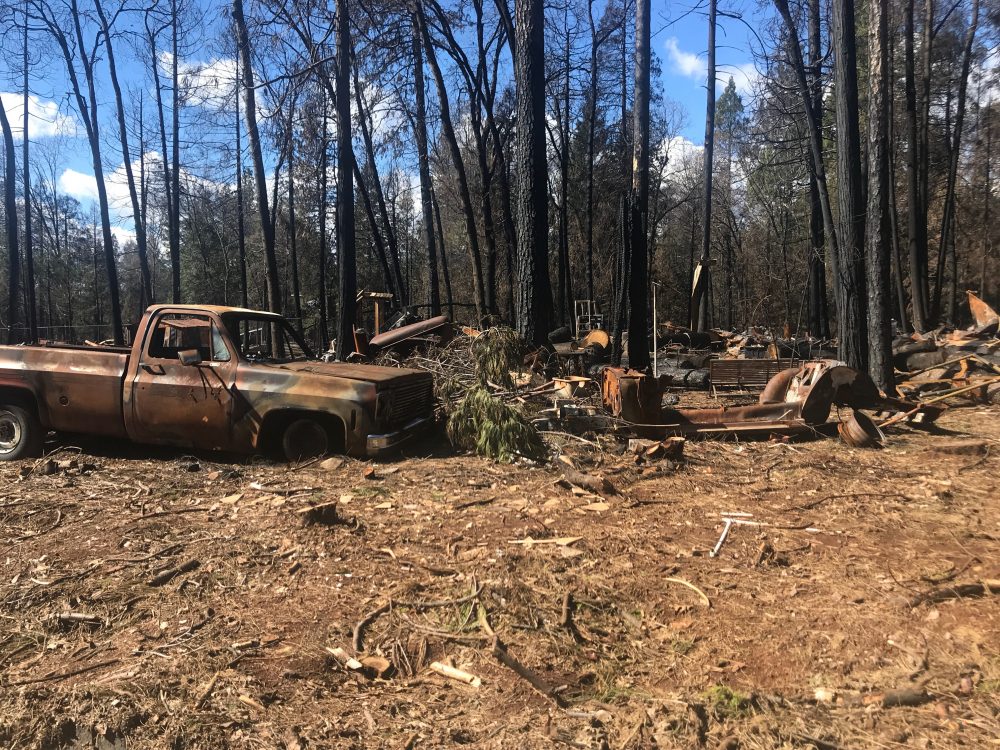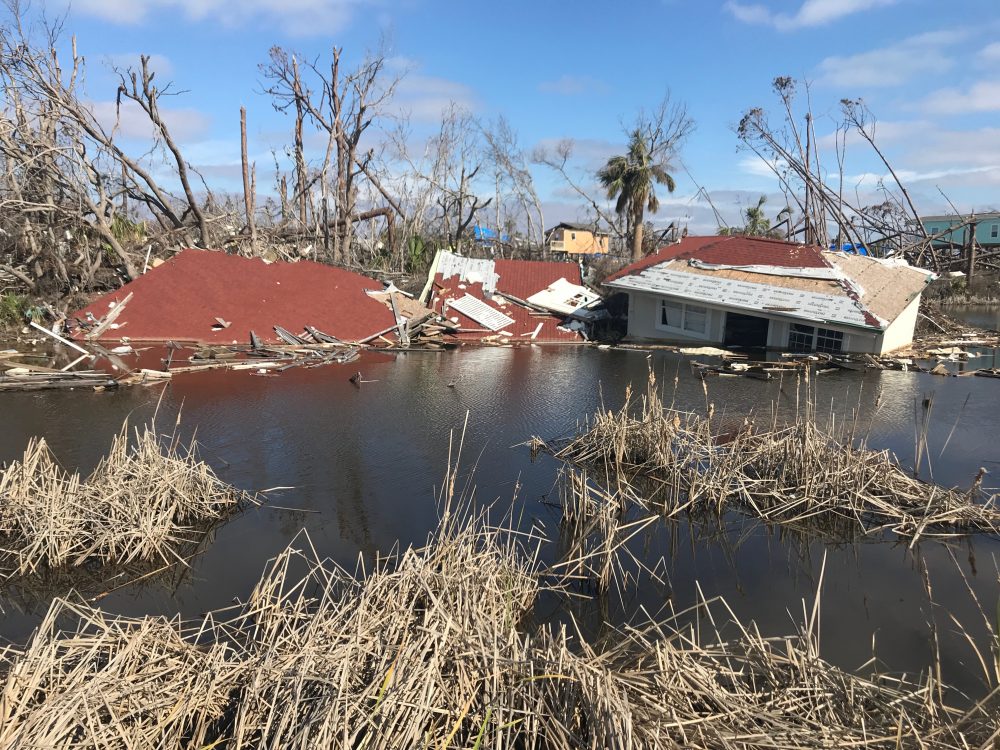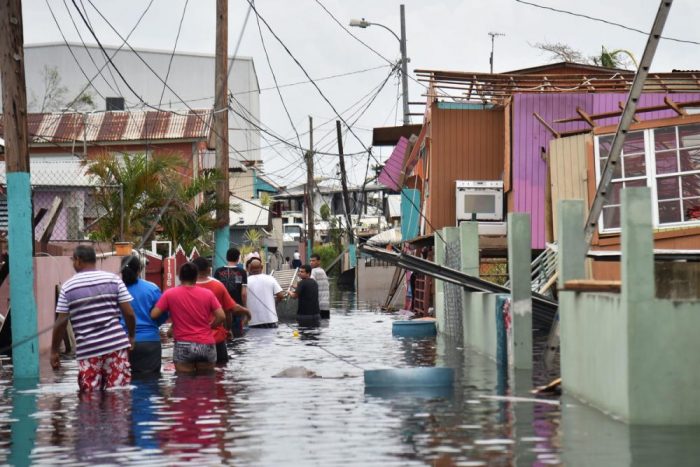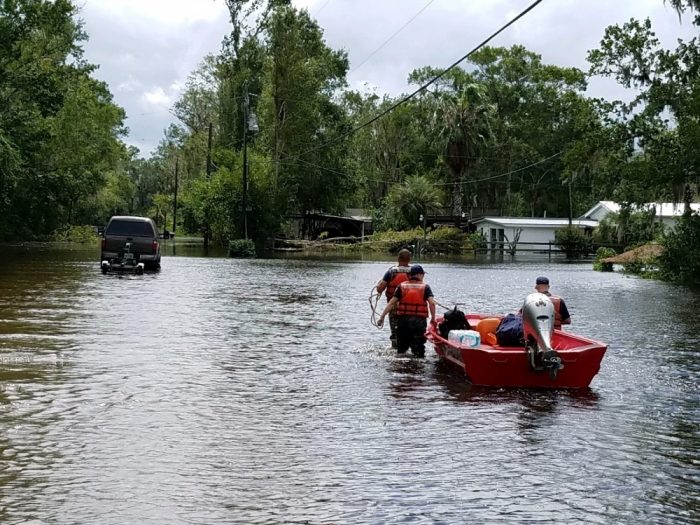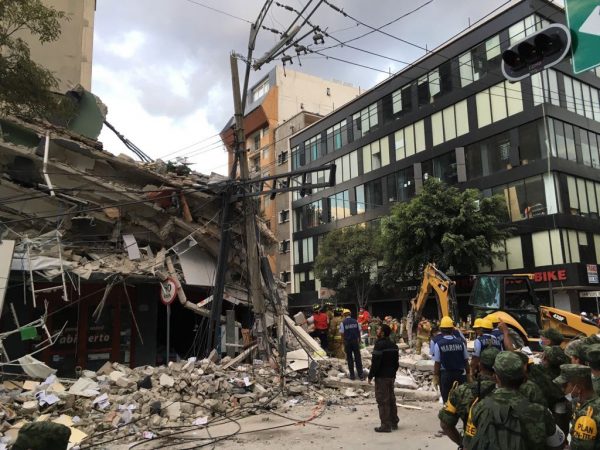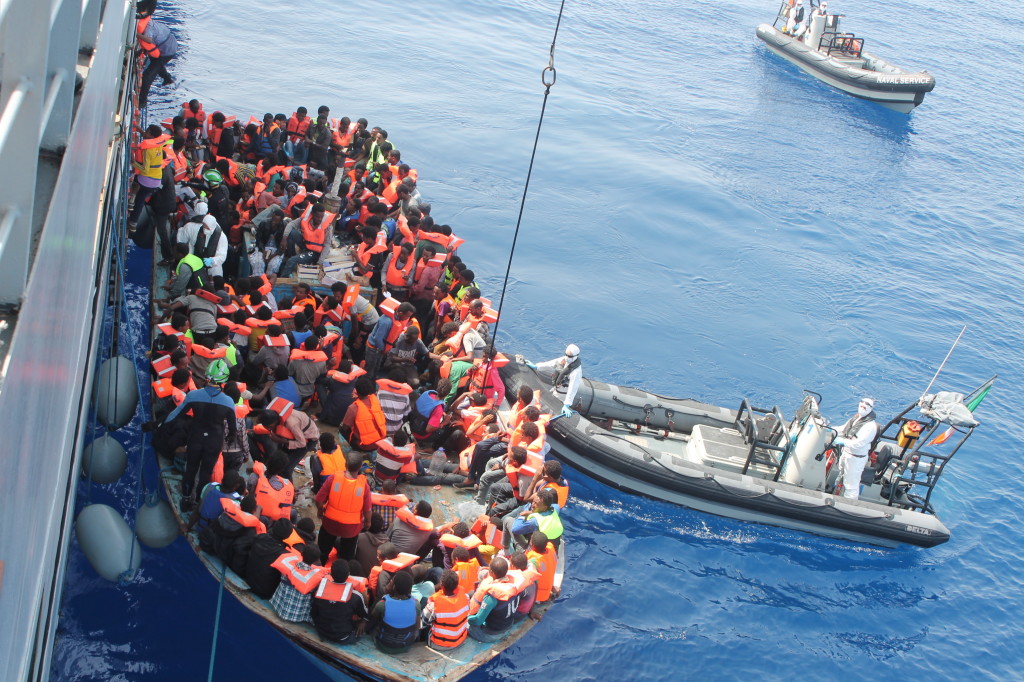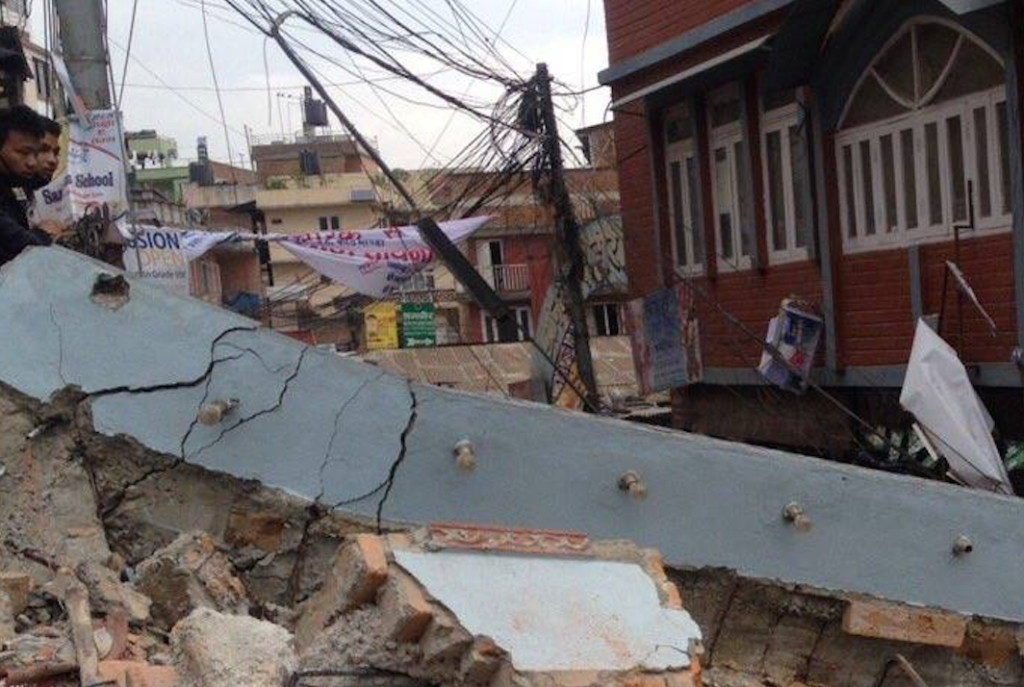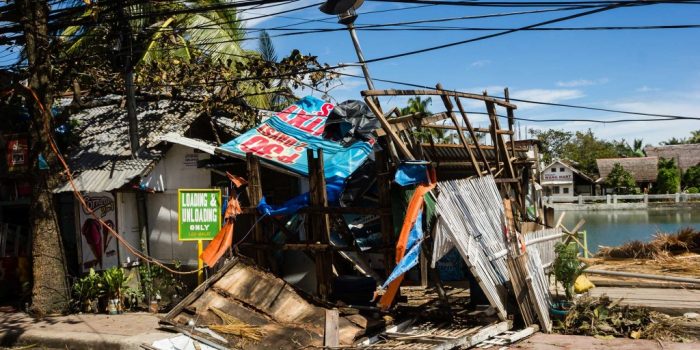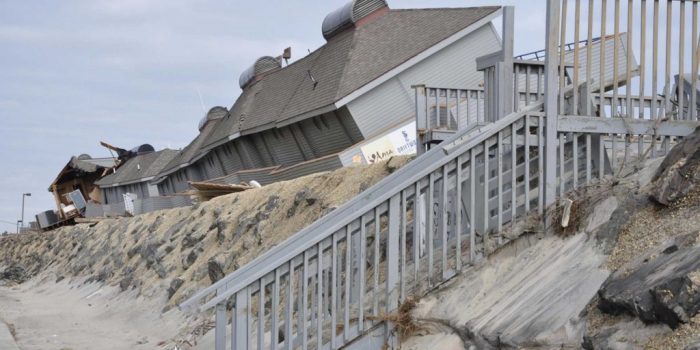Following Hurricane Harvey, a total of 41 counties in Southeast Texas received a federal disaster designation, and nearly 900,000 individual assistance applications had been received by FEMA by the end of November 2017. An additional 200,000 to 300,000 individuals and families were also impacted but did not register with FEMA, mostly because of fragile legal status. Many residents are still displaced from their homes, some still living in hotels across the state and beyond. The storm also impacted schools, affecting more than 1 million students and 220 school districts throughout the region.
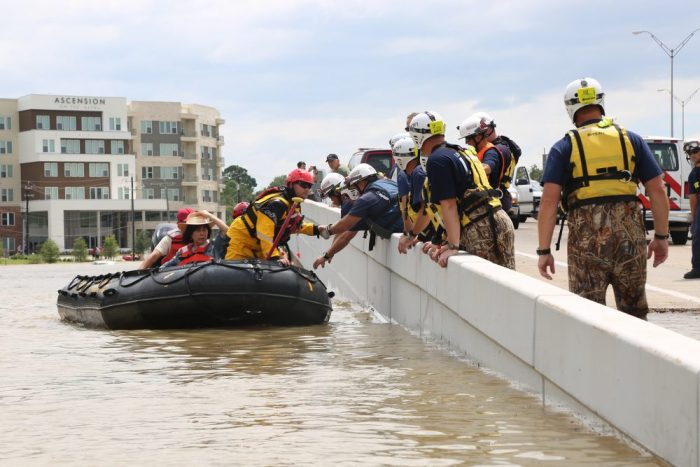
Overview
Philanthropic dollars, though significant in support of this disaster, will not be nearly enough to address all the needs. It is imperative that the funds available to support medium- to long-term recovery through the CDP Hurricane Harvey Recovery Fund be used in a focused and purposeful manner, leveraging other public and private funds to have the biggest impact on the recovery efforts. Since a large percentage of the public funds for Hurricane Harvey are geographically designated specifically to meet recovery needs of Houston and Harris County, it is also important to support recovery efforts throughout the entire region.
Hear voices of recovery from Hurricane Harvey and see how we’re supporting affected communities:
See our grantmaking in action and how diversity, equity and inclusion is the cornerstone of the work we do.
To mark the two-year anniversary of Hurricane Harvey, we have compiled some of the media coverage of the storm’s after effects and the state of recovery in Texas here.
Grantmaking Timeline
 October 2017 – $50,000 grant awarded to OneStar Foundation
October 2017 – $50,000 grant awarded to OneStar Foundation
February 2018 – $1.2 million awarded to seven long-term recovery organizations
March 2018 – $266,500 awarded to two local disaster recovery organizations
June/July 2018 – $4,026,094 awarded to nine outstanding organizations
December 2018 – $2.65 million awarded to five organizations to build resilience
July 2019 – $2.66 million awarded to five organizations to support resilience and housing recovery
September 2019 – $1.06 million awarded to four organizations to support holistic recovery
November 2019 – $871,092 awarded to 10 existing grantees to sustain their work
Grant Committee
A grant committee featuring national, state and local experts in the areas of long-term recovery, nonprofit and government leadership, and the issue areas identified during the assessment has been convened and held its first meeting on January 11, 2018. The purpose of this committee is to advise and assist the CDP Board of Directors and staff leadership in awarding grants. This advice will help CDP maximize the impact of donor generosity that recognizes the full life cycle of the disaster.
Grant committee members include:
Committee Chair: Lori J. Bertman, president and CEO of the Baton Rouge- based Irene W. and C.B. Pennington Foundation. Lori is the co-founder and chairman of the board of CDP.
John T. Cooper, Jr., Ph.D., is the Assistant VP of Public Outreach and Partnership at Texas A&M University. He has an extensive background in disaster long-term recovery, especially as it relates to community resilience, and has previously directed the FEMA-funded Emergency Preparedness.
Kelli King-Jackson is the Senior Program Officer for The Simmons Foundation, a private foundation located in Houston and focused on education, health, civic & community, and human services. She brings more than 15 years of experience working in nonprofit advocacy.
Damian Morales is the Disaster Services Manager for the OneStar Foundation, where he works to support Texas resiliency. He also serves as the chair of Central Texas Voluntary Organizations Active in Disaster (VOAD).
Rey Ocanas is based in Houston and serves as the Executive VP and Director of Corporate Responsibility and Reputation for BBVA Compass. He also oversees the bank’s corporate foundation.
Bob Ottenhoff, President and CEO of the Center for Disaster Philanthropy
Grantees
New grantees will be posted as additional grant funds are awarded.
4B Disaster Response Network was awarded a $350,000 grant. With the grant, 4B will be able to expand volunteer home repair operations by increasing volunteer engagement and organizational capacity to complete repairs in 220 homes. 4B Disaster Response Network is one of the largest and oldest faith-based disaster response networks working through the Houston Responds (a round four CDP Harvey Fund grantee) coalitions.
All Hands and Hearts received $527,000 for the Hurricane Harvey Repair Project: Coastal Bend to improve the ability of the most vulnerable families in the Coastal Bend region of Texas to recover from Hurricane Harvey. All Hands and Hearts will provide full housing recovery for approximately 90 people (36 homes) in San Patricio, Refugio and Aransas counties.
In our final round of grants, All Hands and Hearts received an additional $107,506 grant to support the continuation of their housing repair and rebuild work in the Coastal Bend area of Texas.
Attack Poverty was awarded more than $1.17 million, to be distributed over two years, for the Disaster Recovery Capacity Building project. The funds will allow Attack Poverty to increase its capacity to support full recovery from Hurricane Harvey, and build individual and community resilience within the communities where they are currently working, Fort Bend and North Harris counties, and expand into Brazoria, Galveston and Liberty counties. They will also provide support and technical assistance to those working to provide recovery services in other counties.
The Baytown Area/Chambers County United Way long-term recovery group received $166,500 from the Fund. They’ll use this grant to hire a case worker and a project manager to expand their reach to rebuild and repair more homes in their area. They will focus their efforts in support of elderly and disabled residents first and foremost in order to address the needs of those who have the greatest needs and the least resources for recovery.
This group also received an additional $100,000 to continue to provide housing repair and rebuild projects in the Baytown area where the needs for this work and the difficulty of the repairs is increasing. This United Way coordinates the long-term recovery process for their community and has worked as a strong convener of all the local and national groups working on recovery. The funding will allow them to sustain their capacity for recovery as they continue to focus on rebuilding their community.
BuildAid Houston – A Project of HomeAid Houston – received $700,000 to provide full home repair services to homeowners across the greater Houston metropolitan area who experienced flooding due to Hurricane Harvey. BuildAid is the Houston area’s home builder community’s response to the devastation created there by Hurricane Harvey. Through this program, qualified homeowners will be matched with experienced builder members of the Greater Houston Builders Association (GHBA) who will walk them through a finish selection process. The funds provided to support BuildAid Houston will result in at least 20 completed houses for low-income, vulnerable individuals and families.
The Coalition for Environment, Equity and Resilience (CEER) received $164,000 to engage a community education director to convene public-private meetings regarding recovery efforts and available resources, and to advance the eight-point plan adopted by CEER member organizations. Additionally, CEER will draft targeted white papers outlining community issues for presentation to elected officials or others in the recovery effort, and seek public input or comment on dollars directed toward communities. The 24 member organizations who are part of this important collaborative effort will advocate for those whose voices are most often not heard during recovery and mitigation following a disaster.
The Coastal Bend Recovery Group received a grant of $250,000 to work with case managers to identify an estimated 8,000 households and refer them to community resources for further assistance; purchase materials for and coordinate the repair or rebuild more than 100 homes; and, to initiate an initiative to address additional unmet needs in the area.
In our final round of grants, the group was awarded an additional $85,000 grant to provide disaster case management staff in order to maintain the program so that the recovery progress can continue. At this point in recovery, the cases have become more difficult and complex so these funds are needed to effectively and efficiently provide recovery services to clients in the area.
The Disaster Leadership Team received a grant in the amount of $50,000 to support communities and Texas Long-Term Recovery Groups working to recover from the effects of Hurricane Harvey. They are also planning to develop an online searchable database of long-term recovery forms and documents for other groups to use as they ramp up for the long-term recovery process.
Enterprise Community Partners received $500,000 as a match to $1.5 million in funds provided by the Rebuild Texas Fund for their Housing and Economic Assistance to Rebuild Texas (HEART) program. The program will help families throughout Texas move into healthy, safe homes that are rebuilt to withstand future major flooding and/or hurricane events. Enterprise will work in partnership with the Texas State Affordable Housing Corporation (TSAHC) to provide technical assistance and sub-grants to build the capacity of local housing rebuild/repair organizations working in Texas.
Free Indeed – Community Works CDC was awarded with a $300,000 grant to support the High 5 Harvey Recovery Program, serving at-risk youth and their families in northeast Houston that were affected by Hurricane Harvey. Through this program they will provide a holistic wrap-around approach to supporting the families in this neighborhood. By funding a program that is engaging youth and families on recovery and preparing an at-risk community for the next one, we are supporting organizational and community resilience, one of our identified issue areas for this round of funding. Community Works CDC also collaborates with other organizations for whom we’ve provided funding, so this grant will leverage those dollars, as well.
The Galveston County Long Term Recovery Group was awarded $219,000 to facilitate county-wide outreach and communications on available disaster-related services and advise local government and other stakeholders on community needs and the state of the recovery. The grant also enables the LTRG to directly fund disaster case management and analyze disaster related data to conduct outreach and to identify service gaps in the county.
The Galveston County Long Term Recovery Group was also awarded a second grant of $77,250 to continue to support data management and other operational expenses for sustaining the recovery in their service area. This is one of the first long term recovery groups (LTRGs) we funded and they have been one of the most consistently successful groups with whom we’ve worked. The funds will help them sustain their good work and allow them to continue to leverage their information and resources to engage other organizations in the area.
Golden Crescent Habitat for Humanity was awarded $500,000 to help low-income homeowners achieve strength, stability and self-reliance by repairing and/or rebuilding their homes that were damaged by Hurricane Harvey. These funds will be used to expand Golden Crescent Habitat’s reach into more counties to include: Victoria, Goliad, Dewitt, Jackson, Lavaca and Refugio Counties. These are all locations with few other organizations working to rebuild. Funds will be used to help hire project managers designated to the service areas and contractors when volunteer labor is either not available or requires skilled supervision.
Golden Crescent Habitat for Humanity was also awarded a second grant for $1.2 million to support their involvement repairing and rebuilding homes in Victoria County, Texas, where they will partner with others to completely relocate individuals and families whose homes were in high-risk flooding areas. This project addresses our identified focus areas of housing repair and rebuild and building community resilience. A new subdivision, Hope Meadows, is a collaborative effort of the Victoria County Long Term Recovery Group (VCTLTRG), GCHFH, Samaritan’s Purse, and Mennonite Disaster Services, with funding coming from several different organizations, including our partners at the Rebuild Texas Fund.
Good360 received $250,000 for Good360 Hurricane Harvey Long-Term Recovery to accelerate Hurricane Harvey recovery by solving challenges around logistics and the distribution of needed goods. The grant funds will also satisfy unmet product needs of nonprofit organizations working in long-term disaster recovery in southeast Texas. Specifically, by providing distribution methods and warehousing, the grant will support getting products to where they are needed, and storing and organizing them in a way that is easily accessible to Good360’s nonprofit partners.
Good360 was awarded an additional $125,000 grant to continue to fill material gaps in some of the hardest hit and least funded areas – the Golden Triangle of Jefferson, Orange and Hardin Counties, plus Brazoria County.
Harvey Home Connect (a project of the Greater Houston Community Foundation) was awarded $500,000 for the further development of Harvey Home Connect (HHC), a common application management system for Harvey-impacted homeowners, with a focus on aligning it with existing disaster case management software programs in a more efficient manner. Continued development of HHC will facilitate applications for recovery assistance from Harris County and enable expansion to Fort Bend, Brazoria, Galveston, Waller, and Montgomery counties. This funding is expected to connect more than 1,000 families to recovery resources they would otherwise have difficulty accessing. HHC was created to eliminate barriers to recovery for clients and the nonprofits attempting to serve them. Hurricane Harvey caused property damage at anywhere between $50 billion and $180 billion. Many displaced and affected residents have been relying on nonprofit organizations for transitional housing, food and supplies, financial assistance, case management, connections to available federal resources and housing cleanup/repairs. Nonprofit organizations play a key role in the necessary hard work of cleaning up neighborhoods house by house and rebuilding block by block. Frequently, non-profits and government programs encounter challenges in serving low income residents including legal issues, poor documentation, pre-existing social vulnerabilities, and mental health challenges. Working with the United Way of Greater Houston and the Rebuild Texas Fund, our hope is to expand the positive experience we’ve seen with HHC in Houston to areas beyond the metro and potentially for use in future disasters.
Help! I’m Hurting! Inc., was awarded $100,000 to address the long-term recovery needs of Port Arthur’s uninsured and under-insured residents who have been unable to secure assistance with recovery needs. They plan to support community resident sustainability and meet and maintain housing needs.
Hope Disaster Recovery received $350,000 to expand current operations in order to provide low-cost, volunteer-driven home rebuild operations, increase mobilization of their volunteers and provide staffing support to the volunteers in order to facilitate the full home rebuild process. Hope is a member of the Houston Responds recovery network.
Houston Community ToolBank received $157,400 to expand the geographic reach of its tool lending program and to add requested tools like generators and HEPA air scrubbers to its inventory. This supports our focus area of housing repair and rebuild, as well as organizational resilience. Houston ToolBank will construct four modified shipping containers to be placed in central locations in Galveston County, Fort Bend County, Montgomery County and Harris County. They will also purchase a box truck for tool deliveries and transferring tools among these facilities. Additionally, funds will allow them to hire a staff member to support these additional tool sites and will expand the number and types of tools provided to include generators and HEPA air scrubbers to their inventory (at the request of those using their services). By providing support for these projects, we will allow the important service the Houston ToolBank has been offering to nonprofit organizations during the rebuild process to more easily access their tools and services, making the process run more efficiently. Their reach will also be expanded, which will help these organizations, and in some cases, individuals who are self-recovering, to save precious funds they’ve been having to use to rent or purchase tools.
Houston Immigration Legal Services Collaborative (HILSC) received $427,202 for Making People Whole After Harvey – Immigration Legal Services through the Equal Justice Works Disaster Recovery Legal Corp. HILSC is focused on helping immigrants without legal status navigate complex social and legal services systems, both public and nonprofit. This funding will support recovery among the immigrant population and help build resiliency for this population in Texas by deploying four immigration lawyers or “fellows” to Catholic Charities’ Cabrini Center for Legal Assistance, Human Rights First, YMCA- International Services and the Tahirih Justice Centers, all member organizations of HILSC.
HILSC received an additional $75,000 grant to support the continuation and implementation of the Humanitarian Action Plan and the NeedHOU open source social services database. The plan they are implementing is well-received in the community and will make for a better response in Houston for future disasters.
Houston Responds received $750,000 over 18 months to support increasing community and organizational resilience. Houston Responds works to mobilize churches for disaster response. These funds will help support building the resilience of the communities they serve by developing and/or expanding coalitions of local churches in disaster response networks; empowering network leadership and training church liaisons; ensuring coordination with community leadership and VOAD organizations; advising and supporting network fundraising to secure long-term viability; and developing a model for church networks that can be replicated elsewhere. Specifically, funding will support these efforts in 15 to 22 regions and will help build networks in each of these regions of 20+ churches representing 10,000+ potential volunteers.
The La Grange Area Long Term Recovery Team will use their $100,000 grant to hire a case management supervisor, volunteer coordinator, and construction manager to oversee the process for rebuilding, repairing or relocating homes in flooded neighborhoods along the river in flood zones. They will focus on helping those residents who did not qualify for FEMA assistance and are some of the most vulnerable living in their community.
Lone Star Legal Aid was awarded $500,000 to be used to match more than $2 million provided by the Rebuild Texas Fund to help Lone Star continue to provide legal services to Harvey-affected victims. Legal services provided will include evictions, lease terminations and other landlord problems; mortgage difficulties such as foreclosure; repair scams, insurance scams and appeals; property rights, title-clearing, probate and tax problems; environmental hazards; lost/destroyed documents; appealing FEMA decisions; income maintenance; access to health care, education and unemployment benefits; and family law issues and estate matters. Funds will be used to provide attorneys and paralegals with expertise in disaster-related legal issues in 25 of the 41 affected counties. In addition, funds will be used to facilitate outreach to those who can most use the services provided.
Mental Health America of Greater Houston (MHAGH) received a $163,670 grant to complete the funding to establish the Dickinson Mental Health Project, a collaborative effort with the Hackett Centre at the Meadows Mental Health Policy Institute, DePelchin Children’s Centre, Texas Children’s Hospital (a CDP Harvey Fund grantee), Collaborative for Children and other local partners. We are partnering with the Rebuild Texas Fund to address the mental health needs of the students and families of the Dickinson Independent School District (DISD). Dickinson, Texas saw significant damage from Hurricane Harvey. The trauma and grief it created for the children, youth, teachers, staff and parents within the school district continues to affect the entire community. There is potential for this project to be replicated in other communities as well.
In our final round of grants, MHAGH was awarded an additional $75,000 for a new pilot program to address the hoarding issues that rebuild/repair organizations have been seeing as they’ve tried to support client recovery. They have been integrated into the recovery process from the very beginning, working strategically with schools, long-term recovery groups and other nonprofit organizations to address many of the mental health needs for Harvey survivors.
NECHAMA – Jewish Response to Disaster received $150,000 for their Wharton County Rebuild Project. Funds will help provide basic repairs and rebuild to homes affected by Hurricane Harvey in Wharton County, as well as muck and gut and sanitation as still needed. NECHAMA will complete repairs on 36 homes, and will work closely with fellow CDP Hurricane Harvey Fund grantee, the Wharton County Recovery Team.
OneStar Foundation was awarded a $50,000 grant to add an additional staff member to their disaster services program with work dedicated to supporting long-term recovery efforts across the state of Texas. The new staff member has been hired and is currently working to support training and stand-up of long-term recovery groups.
TechSoup Global received $200,000 to enable community service organizations in disaster-declared counties of Texas to increase their resiliency by strategically migrating their operations to the Cloud to maintain their operations during disaster. TechSoup will identify local consultants that will be able to support building organizational resilience to develop and implement an organizational disaster resiliency plan. Funds will also be used to deliver an updated Disaster Planning and Recovery Guidebook.
Team Rubicon was awarded $200,000 to continue their rebuild operations in Hurricane Harvey affected areas, extending their operations to a third year for those still struggling to recover. This funding will allow them to sustain the work they’ve been able to do in the greater Houston area since recovery first began. Though Team Rubicon’s work started as a clean-up or “muck and gut” operation, they quickly saw the need to do more and began their rebuild program. They’ve become an important partner in helping our communities recover. Our hope is to support this essential work here in Texas to build on their abilities to respond similarly in future disasters, both domestically and internationally.
Texas Children’s Hospital was awarded $779,917, to be spent over two years, for the expansion of the Trauma and Grief Center at Texas Children’s Hospital’s Mobile Unit program. The funding will increase access to best-practice care among traumatized and bereaved children affected by Hurricane Harvey. The Trauma and Grief Center will expand its mobile clinic program to include two units that will provide trauma-informed assessments and care to youth located in the most underserved areas of greater Houston. These units will go to neighborhoods and schools to provide care for children and family members most at risk for PTSD, grief, bereavement, depression and other stressors related to the effects of Hurricane Harvey, particularly those most vulnerable in the population – lower income, immigrants, minorities, etc. Care providers through the mobile units will meet the children where they are, in their communities and in their schools. Referrals for more intensive care can be made to other programs through collaboration with other providers in the Houston Medical Center.
The Texas Tribune received $50,000 for “Public Service Journalism Covering Hurricane Harvey.” The grant will help the Tribune continue to provide coverage on Hurricane Harvey that is not already being provided by other news outlets – going deeper on policy and infrastructure issues, tracking response in Washington, and watching the long-term effects on the economy and the demographics of the region. As the national spotlight has moved away, the Tribune has remained on the story, devoting extra resources to this disaster and how it continues to affect people and policy alike. The Tribune follows recovery funding, housing issues, environmental disasters, links to health and mental health issues, and stories of individual challenges to recover and rebuild lives. The Tribune will also continue to produce free, on the record, public events and panels specifically related to Hurricane Harvey recovery.
United Way of Orange County received $250,000 as the fiscal agent to establish implementation of long-term recovery teams to support the unmet needs of the citizens affected by Hurricane Harvey in Orange, Hardin and Jefferson counties. Orange County Disaster Rebuild and Hardin County Strong are both fully operational and working toward recovery in their respective counties. Jefferson County Judge Jeff Branick, and county commissioners are working to identify the best structure for long-term recovery in their county.
Hardin County Strong received a second $75,000 grant to supplement additional funds they’ve secured to replace four homes. With full support of a strong county judge, Hardin County Strong managed to corral community resources along with statewide and national resources to move Hardin citizens along the recovery path.
Orange County Disaster Rebuilds was awarded an additional $75,000 grant to help build and sustain their staffing capacity for recovery. The funds will be used to support administrative staff for two additional years.
The Victoria County Long Term Recovery Group (VCLTRG) will use their $250,000 grant to establish a permanent, effective and accountable long-term recovery group. This group will plan and provide recovery services to individuals and families affected by disasters in Victoria County.
VCLTRG received a second $76,336 grant to cover staffing costs, unmet needs expenses and warehousing expenses in order to sustain their recovery work. This group has also been creative in addressing the needs of their citizens. Their project will enhance response and recovery in the area for future disasters as well as help with current needs in Harvey recovery. The group stands out as a shining example of how best to manage county-wide disaster recovery.
The Wharton County Long Term Recovery Group received a grant in the amount of $100,000 to provide for the unmet needs of Harvey survivors within the county. The organization’s goal is to provide the infrastructure for long-term rebuilding. Some of this work will be done through direct assistance and rebuilding. Other elements of the work will be to coordinate volunteer groups to provide assistance.
Wharton County Recovery Team (WCRT) was awarded $500,000 to build and repair homes for Harvey survivors whose homes were located in high-risk areas for additional flooding. This is one of two proposals we considered for this round that is part of a complete neighborhood development in order to relocate individuals and families who have suffered from repeated flooding events. It responds to our issue focus areas of housing repair/rebuild and, of course, community resilience. Working with their partners, WCRT will build 40 new homes in the West End of Wharton; repair 100 homes in need of minor repair; add 3 new homes in other parts of Wharton County; and repair 5 homes that have major damage. Wharton County has had four recent floods, including Hurricane Harvey, so building resilience to flooding is paramount in this community.
A partnership between the Rebuild Texas Fund and the CDP Hurricane Harvey Recovery Fund funded the following projects to support preparedness, mitigation and resilience:
- Bee County Sheriff’s Office received $45,000 to support the purchase of specialized response vehicles to use during emergencies.
- Calhoun County was awarded two grants: 1) $3,156 to support the purchase of emergency cots, toilets and supplies to be used for emergency sheltering and 2) $22,500 to purchase fuel tanks with high capacity pumps that tie to a generator for use with emergency vehicles in Precinct 1.
- Town of Fulton received $50,000 to purchase a portable generator for use during power outages.
- City of Ingleside was awarded $10,000 to advertise and educate citizens about the emergency notification system and how to use it.
- City of Port Arthur received $34,100 to purchase four rescue boats to use during flooding emergencies.
- City of Port Arthur Emergency Operations Center was awarded $65,900 to purchase and update equipment for the city’s emergency operations center.
- City of Port Neches received $29,000 to purchase sandbags, generators, ready-to-eat meals and a rescue boat for use during disaster emergencies.
- City of Simonton was awarded $13,955 to purchase equipment to support emergency responders.
- Ed & Hazel Richmond Public Library received $17,184 to purchase and install storm shutters on the library building.
- Grace Episcopal Church was awarded $19,000 to purchase showers, ice-making, hot water and back-up internet facilities so that the church can better operate as an emergency shelter and as a host for volunteers post-disaster.
- Houston Area Women’s Center received $100,000 to purchase and install three generators to maintain electricity during outages.
- Houston Arts Alliance was awarded $75,000 to conduct disaster resilience training for arts agencies and artists.
- Houston Community ToolBank received $50,000 to develop an emergency operations plan, provide training, and purchase disaster tools and supplies for use by disaster response and recovery organizations during and after disasters.
- Missouri City Fire and Rescue was awarded $15,000 to fund organizational preparedness training and training materials.
- North Channel Assistance Ministries received $20,000 to purchase a generator to provide emergency electrical power for their food pantry, and to purchase an ice maker.
- Orange County was awarded $82,140 to purchase sand bag fillers and related equipment for use during flooding emergencies.
- Portland Chamber of Commerce received $15,000 for disaster preparedness training for small businesses.
- Refugio Independent School District was awarded $59,919 to purchase a large storage building to protect school vehicles during disasters.
- San Jacinto College Foundation received $48,112 to conduct hurricane preparedness seminars and distribute disaster kits.
- South East Texas Regional Planning Commission was awarded $100,000 to purchase software to match people in need of rescue with first responders and civilian volunteers.
- South East Texas Regional Advisory Council received $100,000 to purchase two class C tow vehicles for use during disaster emergencies.
- The Texas Women’s Empowerment Foundation was awarded $65,000 to provide training and disaster preparedness kits.
- The University of Texas Health Science Center at Houston received $40,000 to purchase diagnostic screening equipment to facilitate rapid triage at community-based locations
- Tri-County Emergency Medical Services was awarded $33,578 to purchase a rescue vehicle and hurricane shutters.
- Tri-County Fire Department received $98,000 to purchase two rescue boats and trailers.
- Trinity Episcopal Church in Baytown was awarded $28,000 for community preparedness kits, emergency supplies, and installation of shower and laundry facilities to enhance the church’s facilities for use as an emergency shelter and for housing volunteers post-disaster.
- Waller County Office of Emergency Management received $50,560 to purchase a swift water rescue boat.
Impact Stories
CDP Hurricane Harvey Recovery Fund grants have helped rebuild the capacity of local organizations and empowered them to serve their communities at a time of great need. As the long recovery process unfolds, please read and share their stories.
[button]VIEW THEIR STORIES[/button]
Take Action
We’re grateful for all the generous donors to the CDP Hurricane Harvey Recovery Fund in support of recovery work currently underway. Though this fund is now closed, please consider supporting our efforts to transform disaster giving. We will use your donations where they are needed most. Explore additional ways to support CDP here.
[button]DONATE HERE[/button]
For more information or for additional assistance, please contact:
Sally Ray
Director, Hurricane Harvey Recovery Fund
(405) 831-2245
sally.ray@disasterphilanthropy.org
Relevant Resources
- Join the Hurricane Harvey Recovery: Biweekly Funder Briefings.
- Use the Disaster Philanthropy Playbook to guide recovery and funding.
